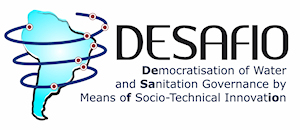2.3 Assessment of Appropriate Water and Sanitation Technologies in Vulnerable Communities in the Baixada Fluminense, Rio de Janeiro, Brazil
The municipality of Queimados in the Baixada Fluminense of Rio de Janeiro’s Metropolitan Region is characterised by deep social inequalities. Despite the many programmes implemented by state and federal governments in the last two decades, most municipalities in the Baixada Fluminense continue to suffer with the poor quality of basic services such as health and education and precarious access to water and sanitation services. However, grassroots initiatives have produced low-cost solutions based on simple technologies to mitigate the problem of lack of access to water for human consumption. In particular, in the absence of formal public services or where these services are very poor, the local population has developed survival strategies that include community-controlled water supply facilities. This case study examined these grassroots innovations to assess the conditions, requirements and possibilities of people-led and low-cost solutions for the lack of safe water and sanitation in vulnerable communities.
The case study was coordinated by Dr Ana Lúcia Britto, from the Federal University of Rio de Janeiro, Brazil.
The case study report has now been published as:
Britto, A. L., A. Maiello, S. Quintslr (2015), “Evaluation of appropriate technologies for access to water in vulnerable communities in the Baixada Fluminense, Rio de Janeiro, Brazil”, in J. E. Castro (Ed.), WATERLAT-GOBACIT Working Papers, DESAFIO Project Series SPIDES, Vol. 2, No 8. Download it here.
































